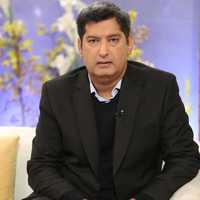Drafts by khurram bargatt
The importance of sustainability in the urban setting cannot be over emphasized, as it concerns t... more The importance of sustainability in the urban setting cannot be over emphasized, as it concerns the very survival of a city. Healthy cities contribute to a healthy nation. Clean environment and economic growth are complimentary to each other and result in a vibrant community who see themselves as "stakeholders" in all aspects of daily life and helps in creating sustainable environment.
Papers by khurram bargatt

The Millennium Development Goals (MDGs), set by United Nations (UN) Member States at the turn of ... more The Millennium Development Goals (MDGs), set by United Nations (UN) Member States at the turn of the Millennium, in 2000, are to reach their sell-by date in 2015. Some progress has been made in achieving the targets set under the eight MDGs, but huge development challenges remain, and some new ones have emerged over the past decade and a half. This is a critical time, therefore, for the setting of a new development agenda and agreeing on a new set of development goals for our planet and its population. Experimental when first formulated at the turn of the 21st century, the MDGs were pioneering – the first-ever global consensus on development priorities – but far from perfect. They largely ignored cities except for a nod to urban issues in a target aimed at " achieving significant improvement in the lives of 100 million slum dwellers ". But this target, hastily constructed and added as an afterthought to Goal 7 " To ensure environmental sustainability " , was not only quickly met (and in fact, exceeded) but also proved essentially meaningless. By 2008, the world had more slum dwellers (1 billion) than in 2000 (760 million). The limitations of the slum target in the MDGs clearly demonstrated that when it comes to sustainability in cities and human settlements, paying attention to housing alone (even if the number is right) is insufficient. An integrated approach is the need of the hour. For those working in the area of cities, urban development or human settlements in general, a central element of the debate has been whether a stand-alone goal focusing on cities/ human settlements issues is required within the development framework that will succeed the MDGs. Many of us feel that this is not only desirable, but critical. As a follow-up to the Rio+20 session, the United Nations appointed an Open Working Group (OWG), with 70 members / 30 seats (votes), to develop the Framework for a new set of Goals – the Sustainable Development Goals or SDGs. A few weeks ago, the OWG adopted a draft Framework by consensus (see http:// sustainabledevelopment.un.org/focussdgs.html). This includes a total of 17 goals and associated targets. Due to the efforts and persistence of a global network of organisations including UN-HABITAT, the World Urban Campaign, SDSN, the Communitas Coalition, Cities Alliance, ICLEI, UCLG and others, a stand-alone goal on cities and human settlements (popularly known as the urban SDG) has been included in the Outcomes Document of the OWG. The proposed SDG 11 reads: " Make cities and human settlements inclusive, safe, resilient and sustainable. " Accompanying this proposal are seven proposed targets pertaining to housing, transport, planning, natural/ cultural heritage, resilience, environment and open space. As constructed today, the urban SDG and its associated targets cover the provision of housing and upgrading of slums; access to transportation and improvements in road safety; enhancing capacities for human settlements planning and management; protection of cultural and natural heritage; reduction in the economic and human loss caused by disasters; mitigation of the adverse environmental impact of cities, particularly through waste management; and access to safe, inclusive and accessible green and public spaces. In addition, it also highlights the importance of adopting and implementing integrated policies towards mitigation and adaptation to climate change, and support to urban resilience. Despite its obvious relevance to our work, some of this may seem distant and theoretical to many of ISOCARP's members. However, whether we are engaged in urban policy, master planning, urban design, regional planning, housing, transport, environment or disasters, this goal, and the wide range of issues it touches upon, will be critical for our future work and perspectives. Many of us work in developing countries, where the number of urban poor, slum-dwellers and homeless people is growing, and the problems they face are becoming more and more acute. Climate change and its associated disasters, as well as other natural calamities, cause enormous damage each year to urban housing, infrastructure and the economy, in cities of both the developed and developing world. Planning, and planners, are increasingly being called upon to mitigate these problems, as well as take steps to address their impacts. An international recognition of the challenges faced by towns and cities, as well as peri-urban and rapidly growing rural settlements, through the urban SDG, will encourage local and national governments to develop integrated development strategies and solutions for our cities, towns, as well as rural areas. It will empower planners to argue for a balanced development of human settlements of all sizes and characteristics, possibly providing a much-needed boost to urban and regional planning in cities and countries where it has become marginalised for a variety of reasons. In the best-case scenario, it may even trigger a reform of outdated planning approaches and land laws, as well as of service standards and service provision arrangements. At the very least, it will force policy-makers to make some commitments towards sustainable and livable human settlements. At the same time, the inclusion of the range of targets as currently associated with the urban SDG will also encourage planners to think holistically and take a broader perspective in their own work.

Uploads
Drafts by khurram bargatt
Papers by khurram bargatt